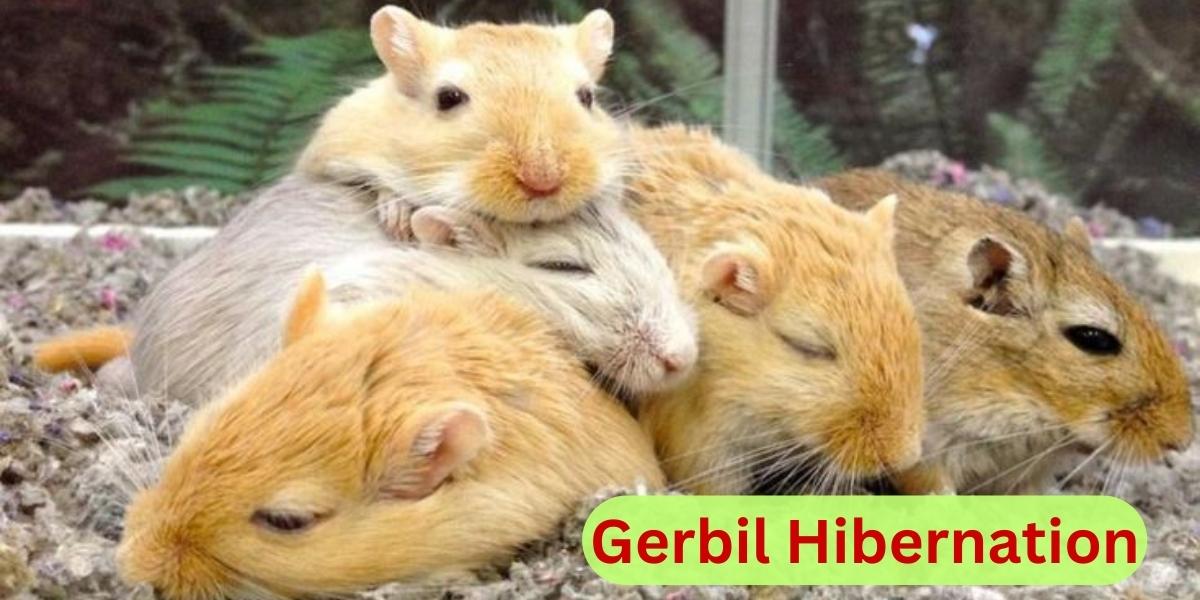Gerbils are fascinating little creatures, known for their energetic and social behavior. One question that often comes up among gerbil owners is, Do Gerbils Hibernate? In this comprehensive guide, we’ll explore the topic of gerbil hibernation, providing you with all the information you need to understand and care for your gerbil in any situation.
Understanding Gerbil Hibernation
Contrary to popular belief, gerbils do not hibernate in the same way as other animals, like bears or hedgehogs. Instead, gerbils may enter a state called torpor. Torpor is a temporary, short-term reduction in body temperature and metabolic rate. It is a survival mechanism that helps gerbils conserve energy in response to cold temperatures or a scarcity of food.
Torpor in gerbils is not a regular occurrence, and it usually only happens under specific conditions. As a gerbil owner, it’s essential to understand the difference between hibernation and torpor to provide the best care for your pet.
Signs of Hibernation in Gerbils
While gerbils do not hibernate in the true sense, they may exhibit some signs of torpor. It’s crucial to recognize these signs to respond appropriately. Some common indicators of torpor in gerbils include:
- • Decreased activity levels
- • Cold body temperature
- • Slowed breathing
- • Lethargy
- • Unresponsiveness to stimuli
If you notice any of these signs in your gerbil, it’s essential to take action to ensure their well-being.
Factors Influencing Gerbil Hibernation
As mentioned earlier, gerbils don’t hibernate but may enter torpor under specific conditions. Some factors that may trigger torpor in gerbils include:
- • Cold temperatures: Gerbils are sensitive to temperature fluctuations and may enter torpor if exposed to cold environments for an extended period.
- • Insufficient food: Limited food availability can cause gerbils to conserve energy by entering torpor.
- • Stress: High-stress situations may trigger a gerbil’s survival instincts, leading to torpor.
Understanding these factors can help you prevent unintentional torpor in your gerbil and ensure their well-being.
Preventing Unintentional Hibernation
To prevent your gerbil from entering torpor, take the following steps:
• Maintain a consistent temperature: Gerbils thrive in temperatures between 65°F and 75°F (18°C to 24°C). Avoid exposing them to temperatures below or above this range.
• Provide a balanced diet: Offer a variety of high-quality, gerbil-specific food to ensure they receive the necessary nutrients to maintain their energy levels.
• Minimize stress: Keep your gerbil’s environment clean, quiet, and comfortable. Provide enrichment opportunities, such as toys and hiding spots, to reduce stress and anxiety.
Caring for a Hibernating Gerbils
If you suspect your gerbil is in a state of torpor, it’s essential to provide the appropriate care to ensure their well-being. Here are some tips on how to care for a gerbil in torpor:
• Gradually warm up their environment: Increase the temperature around your gerbil’s enclosure to bring them out of torpor. Use a space heater or heating pad to gently raise the temperature over several hours.
• Monitor their condition: Keep a close eye on your gerbil during this time. Look for signs of improvement, such as increased activity or responsiveness.
• Provide water and food: Once your gerbil begins to show signs of recovery, ensure they have access to fresh water and food. They may be dehydrated or hungry after emerging from torpor.
Waking a Gerbil from Hibernation
It’s essential to approach waking a gerbil from torpor with care. Follow these steps to help your gerbil return to their normal state:
1. Gradually increase the temperature: As mentioned earlier, gently raise the temperature around your gerbil’s enclosure. Avoid sudden temperature changes, as this can cause stress or shock.
2. Be patient: Allow your gerbil time to recover. It may take several hours for them to regain full activity and responsiveness.
3. Offer food and water: Once your gerbil is awake and moving, provide fresh water and food. They may be hesitant to eat initially, but keep offering food until they regain their appetite.
Remember that torpor is a survival mechanism for gerbils, and forcing them to wake up too quickly can be harmful. Be patient and gentle throughout the process.
Conclusion
While gerbils don’t hibernate in the traditional sense, they may enter a state of torpor under specific conditions. As a gerbil owner, understanding the difference between hibernation and torpor, recognizing the signs, and knowing how to care for a gerbil in torpor are crucial aspects of responsible pet ownership. By providing a stable environment, a balanced diet, and proper care, you can prevent torpor and ensure the well-being of your gerbil.
FAQs
What is the difference between hibernation and torpor in gerbils?
Hibernation is a long-term, seasonal state of inactivity and lowered metabolic rate, while torpor is a short-term, temporary state that reduces a gerbil’s body temperature and metabolic rate. Gerbils do not hibernate, but they may enter torpor under specific conditions.
What are the main triggers for torpor in gerbils?
The primary triggers for torpor in gerbils are cold temperatures, insufficient food, and high-stress situations. Maintaining a consistent temperature, providing a balanced diet, and minimizing stress can help prevent torpor in gerbils.
How can I prevent my gerbil from entering torpor?
To prevent your gerbil from entering torpor, maintain a consistent temperature between 65°F and 75°F (18°C to 24°C), provide a balanced and nutrient-rich diet, and minimize stress by keeping their environment clean, quiet, and comfortable.
What should I do if my gerbil enters torpor?
If your gerbil enters torpor, gradually warm up their environment, monitor their condition, and provide fresh water and food once they show signs of recovery. Be patient and gentle while helping them return to their normal state.
How long does it take for a gerbil to recover from torpor?
The recovery time from torpor may vary between individual gerbils, but it can generally take several hours for a gerbil to regain full activity and responsiveness. Be patient and ensure they have access to fresh water and food during the recovery process.

